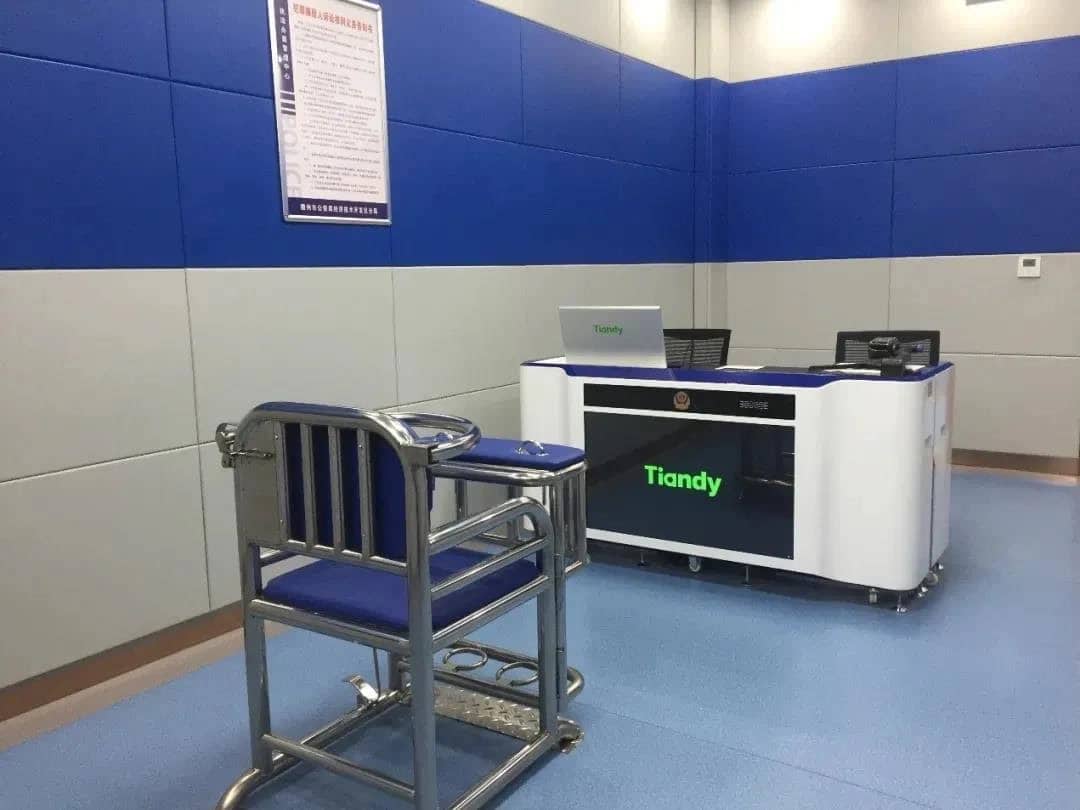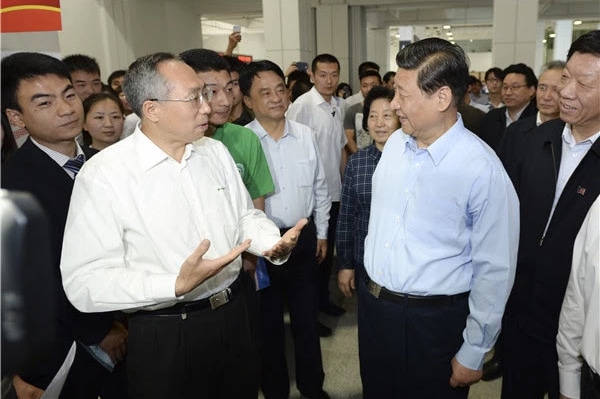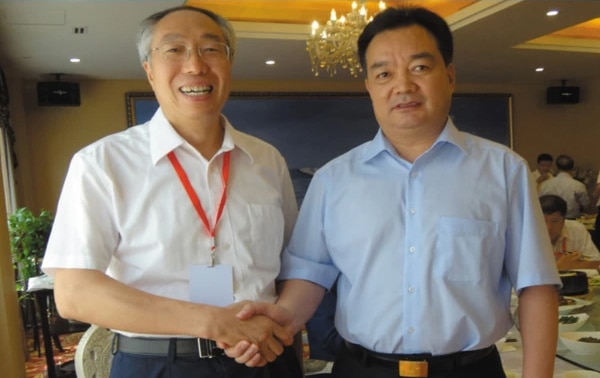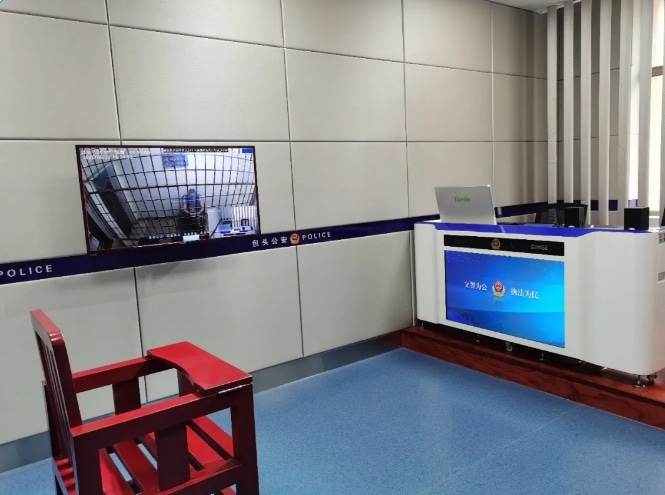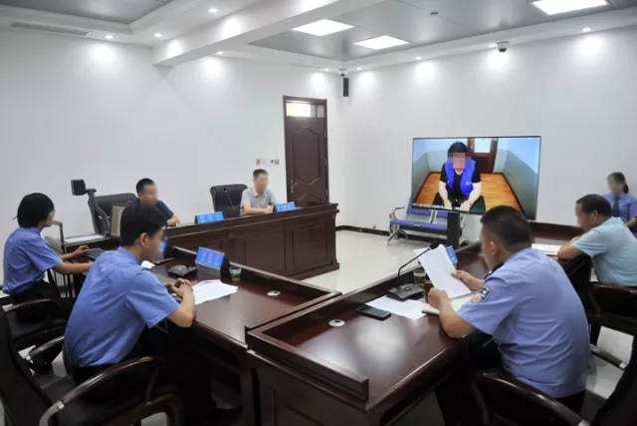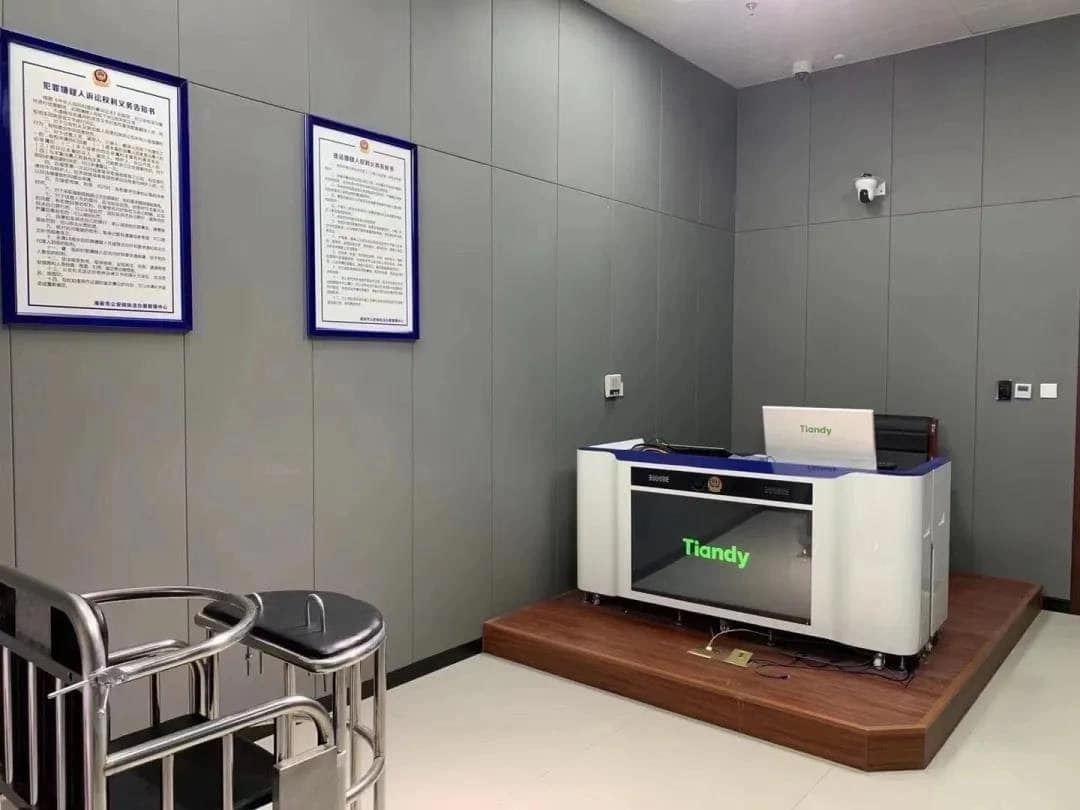December 1, 2022 | Memo
Targeting Tiandy
The Case for Blacklisting a Chinese Tech Firm Tied to Crackdowns on Uyghurs and Iranian Protestors
December 1, 2022 | Memo
Targeting Tiandy
The Case for Blacklisting a Chinese Tech Firm Tied to Crackdowns on Uyghurs and Iranian Protestors
Introduction
China remains the undisputed leader in developing and fielding technologies that enable government control and manipulation of foreign and domestic populations, otherwise known as techno-authoritarianism.1 The firms that produce these technologies consist of both Chinese state-owned companies and China-based private entities susceptible to Beijing’s pressure to censor and surveil. One of those private firms is Tiandy Technologies Co., Ltd. (天津天地伟业数码科技有限公司), based in Tianjin province in northern China. Both Tiandy testimonials and Chinese government press releases advertise the use of the company’s products by Chinese officials to track and interrogate Uyghur Muslims and other ethnic minorities in China’s Xinjiang province.2 According to human rights groups, Chinese authorities also employ Tiandy products, such as “tiger chairs,” to torture Uyghurs and other minorities.3
The Chinese firms that equip Beijing’s surveillance state market facial recognition software, emotion-detecting artificial intelligence (AI) technologies, surveillance drones, and closed-circuit television (CCTV) capabilities to other autocratic regimes, including Russia and the Islamic Republic of Iran. According to Tiandy Iran’s website and Instagram account, the company has sold surveillance equipment to Iran’s security, police, and military services.4 The Internet Protocol Video Market (IPVM), a U.S.-based security industry research group and trade publication, also obtained documents that report such sales.5 The products reportedly sold to Iran include network video recorders that digitize and store surveillance videos, using microchips that Tiandy produced in partnership with U.S. manufacturer Intel.6
At present, Tiandy is not subject to U.S. sanctions or export controls. In light of Tiandy’s operations in both Xinjiang and Iran, policymakers should consider moving quickly to target Tiandy’s global operations to cut the company and its owner, Dai Lin, off from the international financial system and global supply chains.
In particular, Washington should examine whether Tiandy’s conduct meets the criteria for imposing sanctions under Executive Order 13818, which implemented the Global Magnitsky Human Rights Accountability Act, targeting persons who are “responsible for or complicit in, or to have directly or indirectly engaged in, serious human rights abuse.”7 U.S. allies, such as Britain and Canada, that have comparable global human rights sanctions regimes should also determine whether Tiandy meets criteria for sanctions. The U.S. government should consider sanctions and punitive actions pursuant to other laws and executive orders that specifically target the perpetrators of human rights abuses in Iran and China.
Tiandy’s Global Operations and Products
Founded in 1994, Tiandy has grown rapidly into China’s fourth largest CCTV company and a major supplier to the Chinese government, reporting revenues of approximately $620 million in 2019.8 According to Tiandy’s website, its products have reached over 500 “smart cities,” both in China and abroad, as well as security networks at London’s Heathrow Airport.9 Events such as the Davos World Economic Forum and the 2014 World Cup in Brazil have also employed the firm’s technology. Tiandy’s partnership network facilitates product distribution in more than 60 countries, including Australia, Thailand, Vietnam, India, Poland, Albania, Greece, Georgia, Croatia, Uruguay, Kenya, Russia, and Egypt.10 Tiandy’s office in Alberta, Canada, is responsible for managing its U.S. operations and sales, and its products are available for purchase in the U.S. on Amazon.11
Tiandy develops, produces, and markets cameras and related artificial intelligence-enabled software, including an ethnicity tracking tool that the company claims can digitally detect someone’s race. Chinese authorities have deployed ethnicity tracking tools against Uyghurs in Xinjiang, according to human rights groups and press reporting, along with Huawei’s facial recognition software, emotion-detecting AI technologies, surveillance drones, and a host of other techno-authoritarian tools.12
Tiandy has not obfuscated its development of ethnicity tracking AI solutions. In fact, just the opposite. For instance, Tiandy’s 2020 software development kit (SDK) included explicit references to the company’s “race” analytics tool, including its ability to distinguish between Uyghurs and Han Chinese. Tiandy’s SDK code also includes an ethnicity minority estimator. This feature reportedly can determine whether an individual is an ethnic minority by analyzing their face and assigning them a score on a scale of 0 to 100, with a score above 50 indicating that they are an ethnic (i.e., non-Han Chinese) minority.

SDK “Race” Analytic Source Code. Source: Tiandy13

SDK Ethnicity Minority Estimator Source Code. Source: Tiandy14
Tiandy’s race-determining AI analytics can label photographs and other forms of static media. They can also be paired with certain Tiandy camera models to analyze dynamic CCTV footage. For instance, one of Tiandy’s 4K cameras supports “face detection [statistics] based on age, gender, number of people, and ethnicity of faces,” whereas one of its five megapixel (5MP) face recognition cameras “supports … ethnicity of faces,” although the company’s website cautions, “age and ethnicity statistics are imprecise.”15
Tiandy’s public marketing materials also advertise “smart” interrogation tables, which integrate a series of peripheral devices used in the interrogation process, such as touch-screen central control systems, electronic evidence devices, and transcript verification machines.16 The company markets these tables alongside its “tiger chairs,” which feature affixed leg irons and handcuffs to restrain occupants.
Chinese officials have employed “tiger chairs” at Uyghur concentration camps in Xinjiang province. According to Human Rights Watch, former Uyghur detainees have claimed Chinese police strapped them into these metal chairs for hours and even days, depriving them of sleep, and immobilizing them until their legs were swollen.17 Similar findings were cited in the “Xinjiang Police Files,” a cache of internal Chinese government documents obtained by human rights advocates and published by the Victims of Communism Memorial Foundation detailing Chinese human rights abuses in Xinjiang province.18

Tiandy “Smart” Interrogation Table and “Tiger Chair.” Source: Tiandy Marketing Materials, April 2021
Tiandy maintains a partnership with Intel, according to Intel’s website.19 The partnership centers on the use of Intel’s Celeron, Core, and Xeon processors in Tiandy’s networked video recording (NVR) technology. Users can pair the Tiandy product, known as SuperNVR*, with digital internet protocol (IP) cameras to create complex video surveillance systems involving thousands of closed-circuit cameras. Tiandy sells its NVR systems in Europe, North America, South America, Central America, China, the Asia Pacific, Japan, Africa, and the Middle East.
Additionally, Tiandy is listed on Intel China’s website as a “titanium level” Intel Original Equipment Manufacturer (OEM) partner, the top tier of Intel’s global membership program for partner companies that deliver Intel-based technology solutions to the marketplace.20 Intel awarded Tiandy a security industry strategic partner award in 2018, as well as the Intel Application Innovation Award in 2019.21

Source: Intel, November 2022

Source: Intel China’s Website, November 2022
Tiandy’s Owner and Operations in China
Tiandy is owned almost exclusively by its founder and chief executive officer, Dai Lin, a member of the Chinese Communist Party (CCP) who also served as one of 2,270 delegates to the CCP’s 18th Party Congress in 2012.22 Dai also serves as the head of Tiandy’s Party Committee, which, in accordance with the Chinese constitution, operates as a CCP cell within Tiandy’s corporate structure.23 In this capacity, Dai is responsible for ensuring that Tiandy implements CCP policies and that the company’s operations and hirings align with CCP priorities. The company adheres to 2017 guidance issued by China’s Ministry of Public Security outlining technical requirements for facial recognition and ethnicity tracking analytics in public security-related surveillance.24
Tiandy’s website includes a page documenting Dai Lin’s meetings with senior CCP officials, including Xi Jinping, who visited Tiandy’s headquarters in 2016, and former Deputy Communist Party Secretary of Xinjiang Province Wang Junzheng, whom the U.S. government sanctioned in 202125 pursuant to Executive Order 13818 for his direct role in perpetrating serious human rights violations in Xinjiang.

Xi Jinping visits Tiandy’s Headquarters and meets with Tiandy CEO Dai Lin in September 2016. Source: Tiandy

Tiandy CEO Dai Lin meets with former Deputy Communist Party Secretary of Xinjiang Province and U.S. sanctions designee Wang Junzheng in 2014. Source: Tiandy
Tiandy employs approximately 2,000 individuals, most of whom work out of the company’s Tianjin-based headquarters.26 However, Tiandy also maintains an approximately 40-person office in Urumqi, the capital of the Xinjiang region where Uyghurs are oppressed.27 The company touts its work in Xinjiang as providing “stability maintenance” and sustaining “safe cities, roads, hotels, courts, and mosques.” Tiandy’s Xinjiang website references the company’s “interrogation solution,” used by Chinese police and courts in Xinjiang.28 In 2014, Tiandy hosted a training session for Xinjiang procuratorate information technology personnel, an extension of the prosecutor’s office.29 In the session, trainees learned about Tiandy’s first-of-its-kind
Tiandy has been integral in selling and installing integrated police security solutions to many Chinese police and court systems, according to its website. Those solutions include building law enforcement, interrogation, and case management centers across Tibet, as well as the provinces of Inner Mongolia, Henan, Shandong, and Qinghai.30

Tiandy interrogation system installed in Baotou Province, China, in 2020. Source: Tiandy

Tiandy’s integrated video technology prosecutorial interrogation system installed in Nanyang City, Henan Province, in 2021. Source: Tiandy

Tiandy’s Intelligent Law Enforcement Case Handling Management Center in Qinghai Province in 2021. Source: Tiandy

Tiandy’s “Intelligent Interrogation Table,” as installed in Haian City in Jiangsu Province, China, in May 2021. Source: Tiandy
Tiandy’s Operations in Iran
Iran has long relied on China to augment its digital surveillance capabilities, and Tehran was an early adopter of Beijing’s “social credit” system, which it wields to assess citizens’ behavior and trustworthiness.31 In 2020, the U.S. government accused Huawei of aiding Tehran by “installing surveillance equipment, including surveillance equipment to monitor, identify, and detain protesters” during bouts of unrest.32
Iranian government representatives have publicized plans to leverage smart technologies, including AI-powered face recognition, to maintain regime stability and neutralize dissent. Enhanced cooperation with China is central to those efforts, and in April 2021, Mahmoud Nabavian, an Iranian parliamentarian, noted that cyber cooperation with China was a pivotal national security matter for the regime in Iran. He said it was important for Iran to “cooperate with China in the field of artificial intelligence” as well as “in the military and defense fields.”33
In response to countrywide protests this year, Moosa Chazanfarabadi, the head of the Iranian Parliament’s judicial commission, suggested that a large police presence on the streets would not be necessary if the government accelerated efforts to equip security forces with smart technologies.34 Leaders representing Iran’s Border Guard Command (known as FARAJA or مرزبانی فراجا) have issued statements warning Iranian protestors that Iranian security services intend to use surveillance cameras to identify and arrest individuals involved in protests.35
In 2021, according to contract documents obtained by IPVM, a research group and trade publication, Tiandy reportedly supplied Iran’s Islamic Revolutionary Guard Corps (IRGC), police, and military with several of its products.36 Tiandy’s partnership with Iran is overseen by its eight-person office in Tehran.37 In addition to the IRGC, Tiandy’s Iranian clients include the Qom and Zanjan Social Security Organization; Iran’s Armed Forces Social Security Organization; the Criminal Investigation Department of Khomam City’s Police Force; Iran Electronics Industries, an Iranian government organization affiliated with Iran’s Ministry of Defense and Armed Forces Support; as well as other Iranian security and military entities.38
Tiandy reportedly supplied the Iranian military with networked video recorders to digitize and store surveillance videos, according to a since-deleted Tiandy Instagram post. These recorders, including Tiandy’s K2000 “all in one” video management server, are powered by microchips produced by U.S. manufacturer Intel.39
Tiandy’s products are available commercially in Iran. On Tiandy Iran’s website, Iran-based customers can purchase all of Tiandy’s surveillance offerings, which are distributed via Faragostar Persia Electronics Co., an Iranian firm.40 These include dozens of models of AI-enabled dome cameras, networked camera solutions, facial recognition terminals, and thermal imaging cameras. Tiandy Iran sells Video Management Systems that integrate with cameras, encoders, recording systems, underlying storage infrastructure, client workstations, gateway systems, and analytics software, mainly by providing a single interface for video surveillance infrastructure management.

Sample Tiandy Product Offerings for Purchase in Iran. Source: Tiandy
Policy Recommendations
At present, Tiandy is not subject to U.S. sanctions or export controls. In light of Tiandy’s operations in both Xinjiang and Iran, policymakers should consider removing the company, its owner, and stakeholders from the international financial system and global supply chains.
To that end, the United States and its allies should consider Magnitsky sanctions and work to shut Tiandy offices around the world. The Treasury Department should consider adding Tiandy and its CEO, Dai, to the Specially Designated Nationals and Blocked Persons List under its broad Iran human rights sanctions authorities.41 Executive Order 13606 imposes sanctions on those who employ “information and communications technology that facilitates computer or network disruption, monitoring, or tracking that could assist in or enable serious human rights abuses by or on behalf of the Government of Iran.”42
Similarly, Executive Order 13553, which implements the human rights sanctions contained in the Comprehensive Iran Sanctions, Accountability, and Divestment Act of 2010, imposes sanctions on persons who have “provided financial, material, or technological support” for “the commission of serious human rights abuses” in Iran.43 Wielding these authorities would cut Tiandy off from U.S. banks and limit its ability to operate around the world.
Relatedly, the executive branch should determine whether Tiandy’s operations violate portions of the Uyghur Human Rights Policy Act of 2020 and, if so, impose the sanctions mandated against foreign persons responsible for using torture, or cruel, inhumane, or degrading treatment and punishment against the Uyghurs and others.44
Meanwhile, the Department of Commerce’s Bureau of Industry and Security should consider including Tiandy on its Entity List, thereby restricting the export of U.S. technology and components to the company by subjecting them to license requirements and/or export bans on specific items, such as U.S.-produced semiconductors and associated parts.45 The Federal Communications Commission should explore banning Tiandy’s products in the United States, consistent with its authorities in the Secure Equipment Act of 2021.46 Lastly, the State Department should consider issuing visa revocations for Dai as well as select Tiandy officials.
For too long, companies like Tiandy have operated with impunity. Action against Tiandy would send a clear message that Washington takes Chinese techno-authoritarianism seriously and will hold accountable those who facilitate Beijing and Tehran’s abuses.

